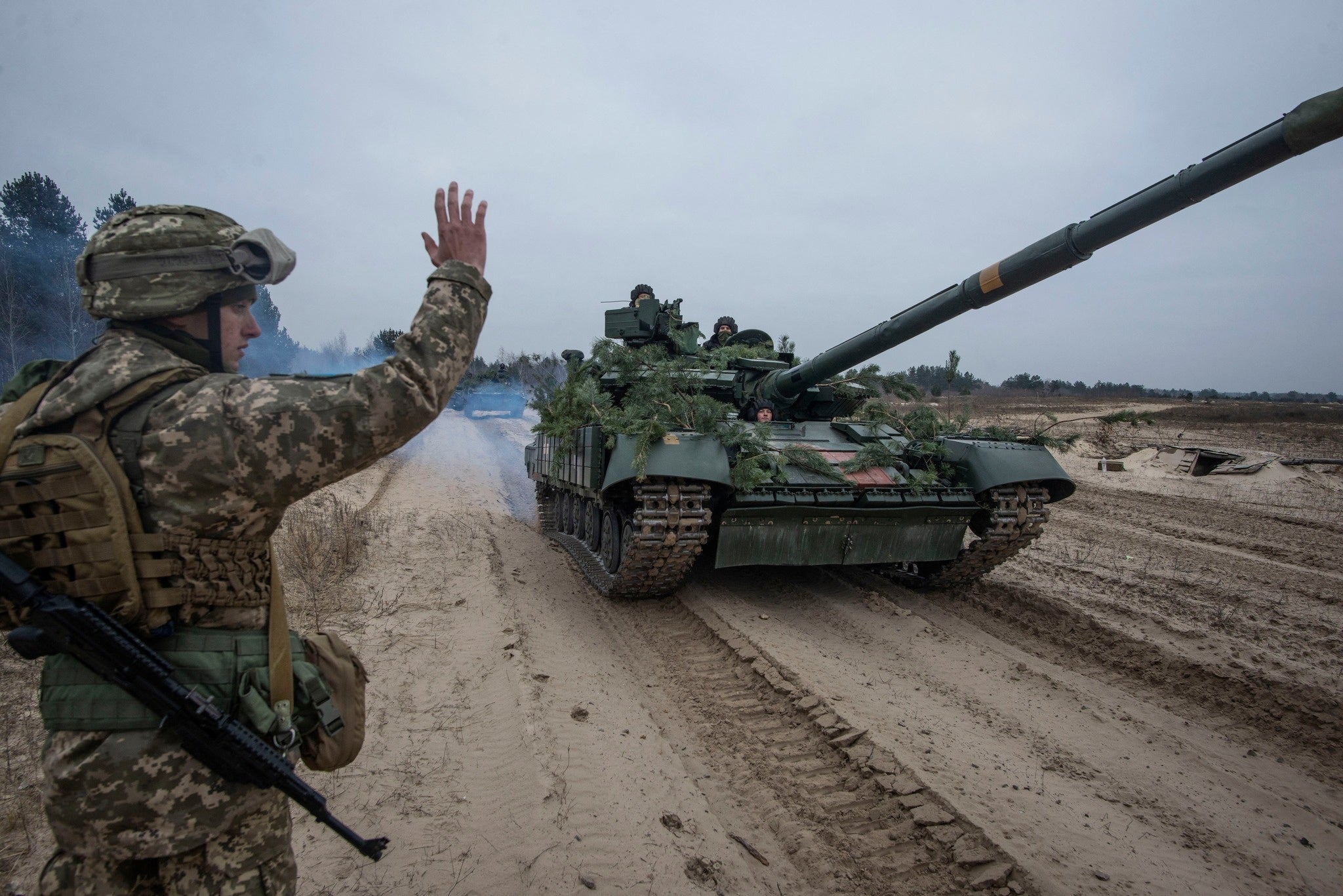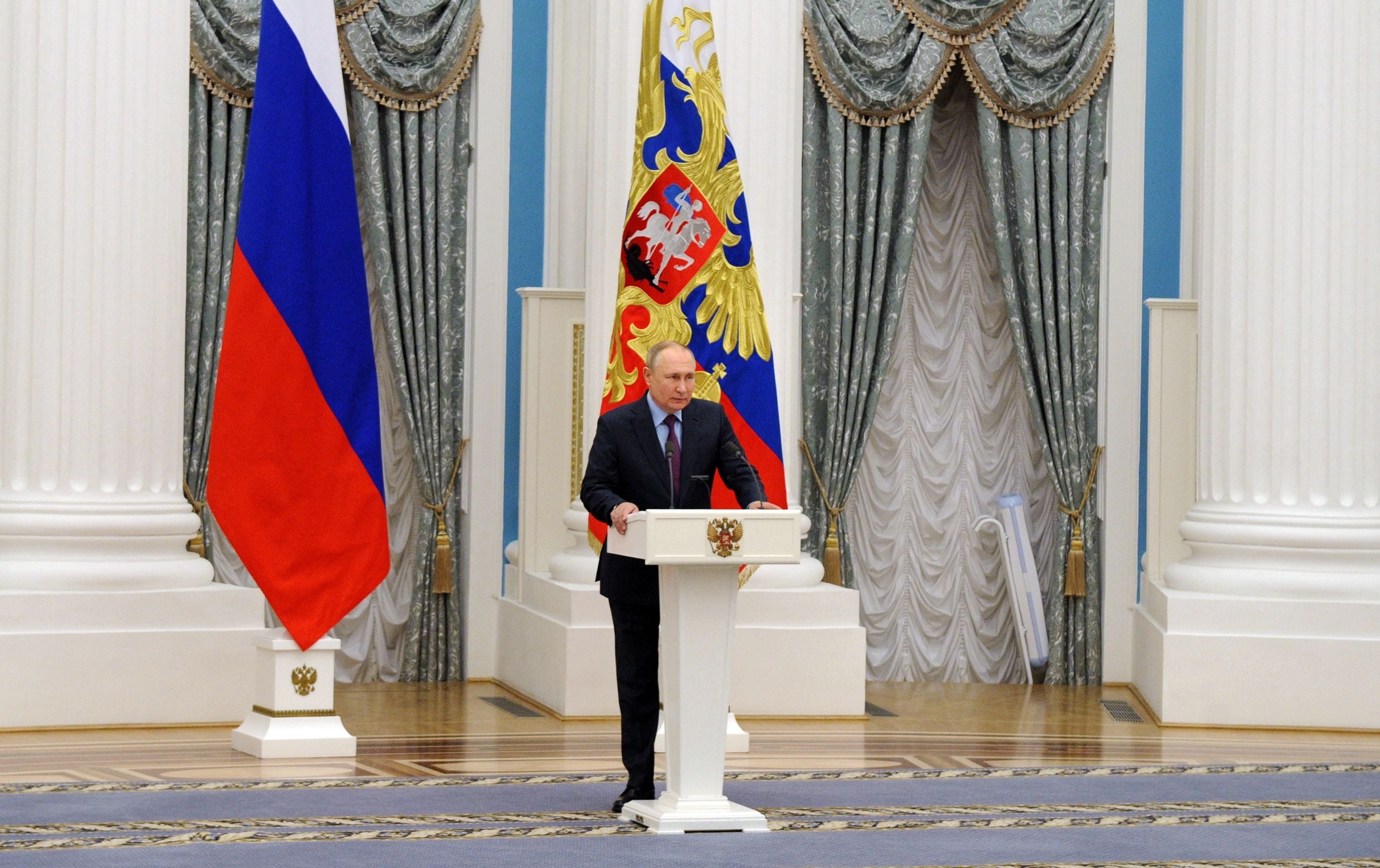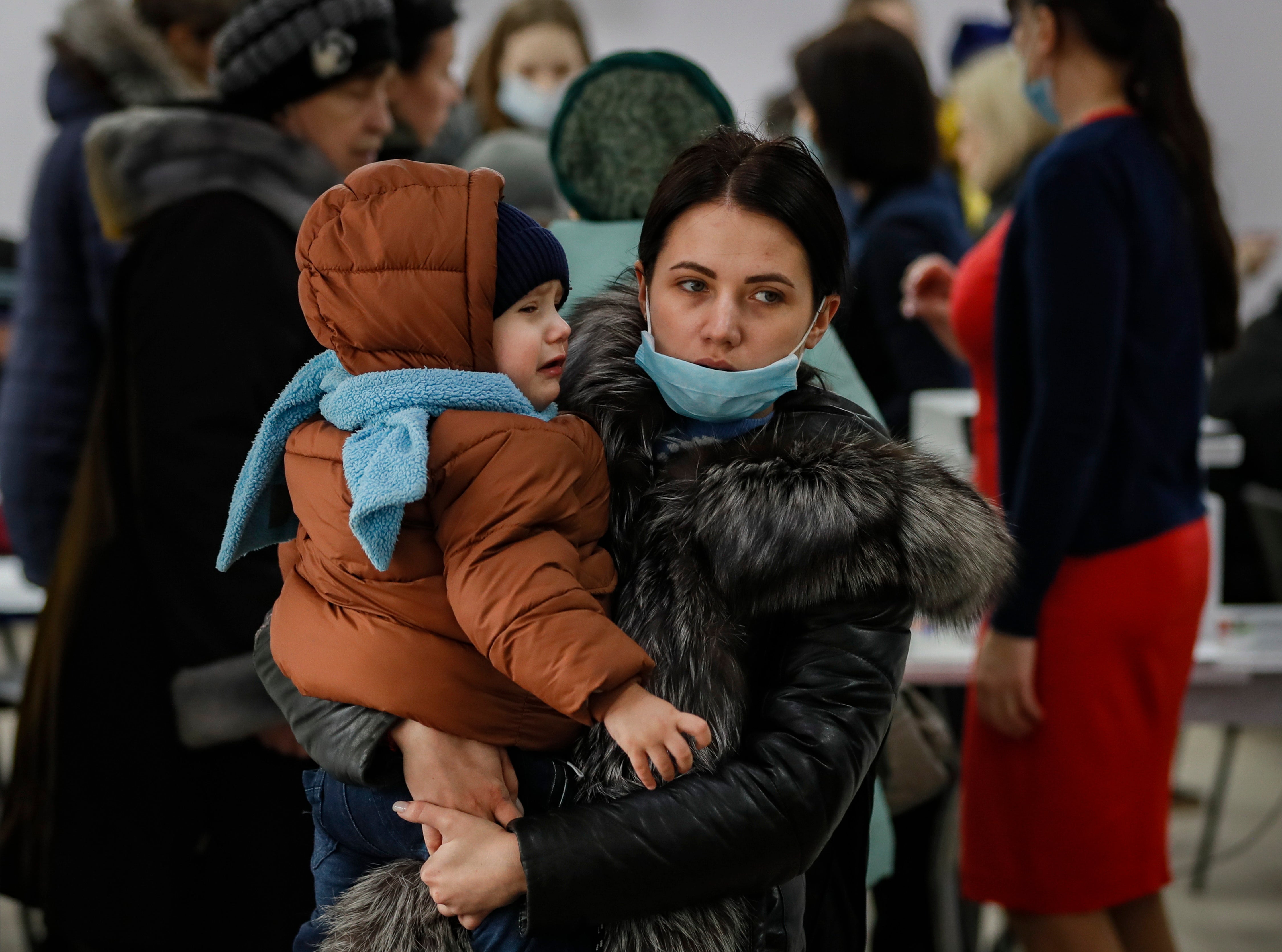Russia approves use of armed forces abroad as US says invasion of Ukraine ‘underway’
In Kiev, the government threatened to break off relations with Russia

Your support helps us to tell the story
From reproductive rights to climate change to Big Tech, The Independent is on the ground when the story is developing. Whether it's investigating the financials of Elon Musk's pro-Trump PAC or producing our latest documentary, 'The A Word', which shines a light on the American women fighting for reproductive rights, we know how important it is to parse out the facts from the messaging.
At such a critical moment in US history, we need reporters on the ground. Your donation allows us to keep sending journalists to speak to both sides of the story.
The Independent is trusted by Americans across the entire political spectrum. And unlike many other quality news outlets, we choose not to lock Americans out of our reporting and analysis with paywalls. We believe quality journalism should be available to everyone, paid for by those who can afford it.
Your support makes all the difference.Russia’s parliament has agreed a request from its president Vladimir Putin to use the country’s military forces outside the country, a move which could allow a broader attack on Ukraine.
Mr Putin made his request in a letter to the upper house of parliament, the Federation Council, to formalise any Russian military deployment.
The move was quickly, and unanimously, rubber-stamped later on Tuesday and came into immediate effect. The parliamentary approval came just hours after the US said an invasion of Ukraine had begun.
Shortly after the vote, Mr Putin laid out three conditions to end the crisis which threatens to plunge Europe back into war, the potential for massive number casualties, energy shortages and global economic chaos.
The Russian leader called for international recognition of Crimea, which was annexed in 2104, as part of Russia, an end to Ukraine’s Nato membership bid as well as a halt to weapons shipments.
Earlier this week, the US said it would not recognise Crimea as part of Russia.
With tensions rising, the White House began referring to Russian deployments as an “invasion” after initially hesitating to use the term – a red line that US president Joe Biden has said would result in the US placing severe sanctions against Moscow. Mr Biden is expected to make an announcement later on Tuesday.
“We think this is, yes, the beginning of an invasion, Russia’s latest invasion into Ukraine,” Jon Finer, principal deputy national security adviser, told CNN. “An invasion is an invasion, and that is what is underway.”

The latest escalations in the simmering crisis appeared to push Europe even closer to war. They came the day after Mr Putin said he recognised the independence of the breakaway Luhansk and Donetsk regions in eastern Ukraine.
With Europe on the brink, countries scrambled to penalise Russia for its actions with a series of sanctions being announced or promised. The most important of these was Germany’s decision to halt approval of the Nord Stream 2 gas pipeline.
German chancellor Olaf Scholz said that Berlin had decided to “reassess” the certification of the pipeline, which has not yet begun operating, following Moscow’s actions.
“Now it’s up to the international community to react to this one-sided, incomprehensible and unjustified action by the Russian president,” Mr Scholz told reporters in Berlin.
He added Russia’s actions marked a “serious break of international law” and that it was necessary to “send a clear signal to Moscow that such actions won’t remain without consequences”.
Mr Scholz said he had asked the economy ministry to take steps to make sure that certification could not take place at the moment.
Nord Stream 2 is a 745-mile pipeline stretching from western Russia’s border to Greifswald in northeastern Germany via the Baltic Sea.

The decision on Nord Stream 2 is a significant one for Berlin, which had long resisted pulling the plug on the project despite pressure from the United States and some European countries who argue it increases Europe’s reliance on Russia’s energy supplies. The pipeline would double the amount of gas flowing from Russia to Germany.
European Union members also unanimously agreed on an initial set of sanctions targeting Russian officials, French foreign minister Jean-Yves Le Drianance’s said. EU foreign affairs chief Josep Borrell said the package “will hurt Russia, and it will hurt a lot”.
He added it would target members of Russia’s lower house of parliament and other individuals involved in approving the deployment of Russian troops to separatist-held regions of eastern Ukraine. “This story is not finished,” said Borrell of Russian actions in Ukraine.
However, he admitted Mr Putin was not on the sanctions list.
In Europe, several countries, including the Czech Republic, warned of an imminent refugee crisis if there was any war and Hungary said it would place troops on its border with Ukraine. In Kiev, the government threatened to break off relations with Russia.

Sajid Javid, the health secretary, told Sky News that “the invasion of Ukraine has begun”. It came ahead of sanctions announced by Britain with prime minister Boris Johnson targeting five banks along with three Russian billionaires.
The package was described as disappointing by critics. The Kremlin hasn’t confirmed any troop deployments to the rebel east, saying it will depend on the security situation and spoken of “peacekeepers” being deployed in the regions.



Join our commenting forum
Join thought-provoking conversations, follow other Independent readers and see their replies
Comments